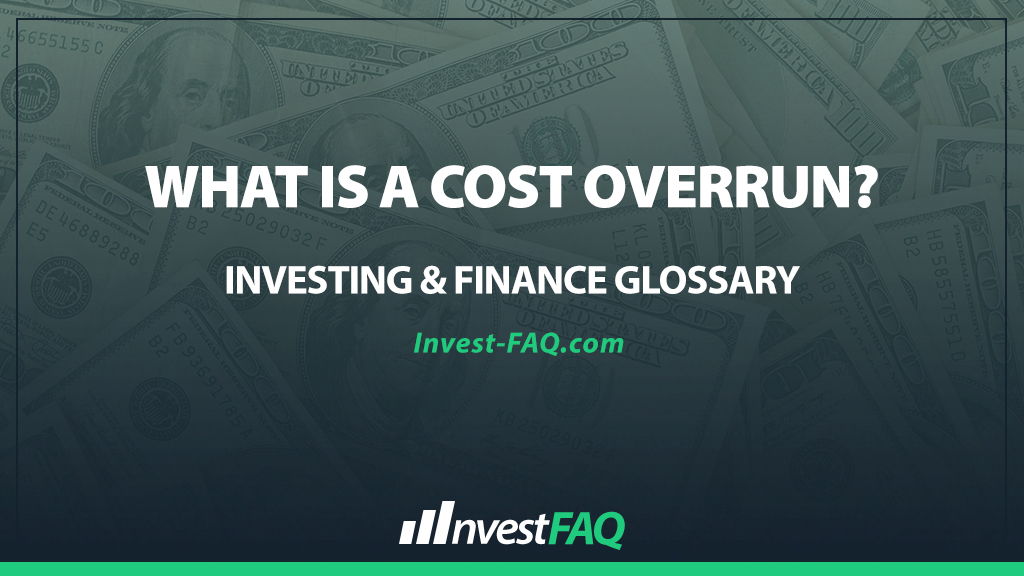
Cost Overrun
Contents
A cost overrun occurs when the actual cost of a project, operation, or transaction exceeds the original budget or estimate. It is a common challenge in various industries, indicating a deviation from planned financial allocations and often leading to financial stress for businesses undertaking large projects.
Cost overruns are particularly prevalent in construction, technology, manufacturing, and research projects, where initial estimates may not fully account for unexpected issues or changes in scope. In business, managing and mitigating cost overruns is crucial to maintaining profitability and achieving project objectives.
Effective project management, thorough budgeting, and contingency planning are essential strategies to prevent or minimize the impact of cost overruns.
Example of a Cost Overrun
Imagine “BuildRight Construction Co.” embarks on a commercial building project with an initial budget of $5 million. During the project, unforeseen ground conditions require additional foundation work, and material costs rise due to market fluctuations, resulting in total actual costs of $5.8 million. The cost overrun for BuildRight Construction Co. is $800,000, exceeding the original budget by 16%.
In this scenario, the cost overrun experienced by BuildRight Construction Co. highlights the unpredictability and complexity of construction projects. The unforeseen ground conditions and fluctuating material costs were beyond the control of the company, demonstrating how external factors can lead to increased expenses.
This overrun not only impacts the financial health of the project but also requires adjustments to financial planning and reporting, affecting the company’s profitability and cash flow management.
Types and Uses in Business Scenarios
Cost overruns can manifest in various business scenarios, including:
Construction Projects: Where unforeseen site conditions or changes in project scope can lead to additional costs.
Product Development: Involving research and design changes that increase the budget.
IT and Software Projects: Where complexity and changing requirements can escalate costs beyond initial estimates.
Event Planning: Where unexpected expenses or changes can lead to budget overruns.
Understanding and anticipating potential areas for cost overruns is critical for businesses to implement controls and manage project budgets effectively.
Significance for Investing & Finance
From an accounting perspective, cost overruns have several implications:
Budget Revisions: Require adjustments to project budgets and financial forecasts, impacting financial planning.
Profitability Analysis: Affect the profitability of projects, necessitating a reassessment of financial viability and return on investment.
Financial Reporting: Impact the accuracy and integrity of financial reporting, requiring disclosure of budget variances and their effects on financial outcomes.
In summary, a cost overrun represents a critical financial management challenge, underscoring the importance of accurate budgeting, thorough project planning, and effective cost control mechanisms.
By understanding the causes and implementing strategies to mitigate these overruns, businesses can better manage project risks, protect their profitability, and enhance their decision-making processes.
FAQ
How can businesses prevent cost overruns in large projects?
Businesses can prevent cost overruns by conducting thorough project planning, including risk assessments, and implementing stringent budget monitoring and control mechanisms to identify and address potential overruns early.
What is the impact of a cost overrun on a project’s return on investment (ROI)?
A cost overrun can significantly reduce a project’s return on investment (ROI) by increasing the project’s total cost, thereby diminishing the expected profit margins or even resulting in a loss.
Can cost overruns affect a company’s relationship with its stakeholders?
Yes, cost overruns can strain relationships with stakeholders, including investors, clients, and partners, by undermining trust and confidence in the company’s ability to manage projects and finances effectively.
Are there any industries more prone to experiencing cost overruns?
Industries involving complex, large-scale projects with long timelines, such as construction, defense, and technology, are more prone to experiencing cost overruns due to the increased likelihood of unforeseen challenges and changes in project scope.
